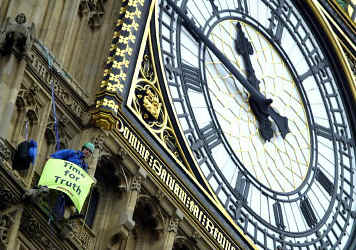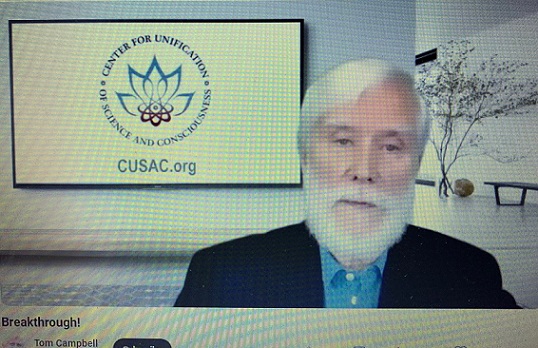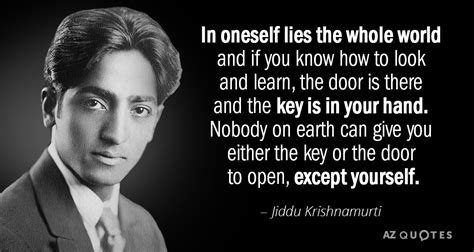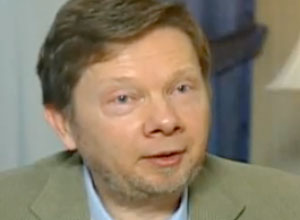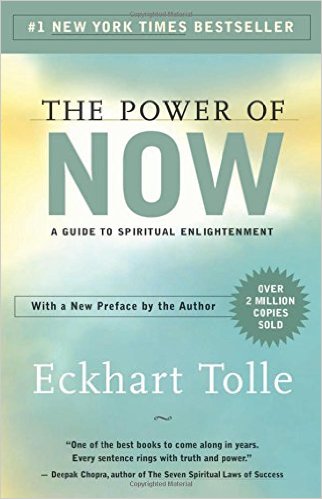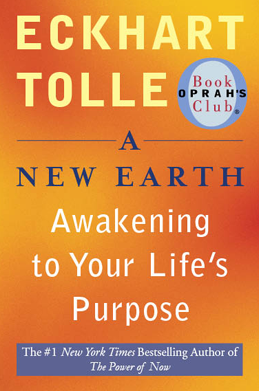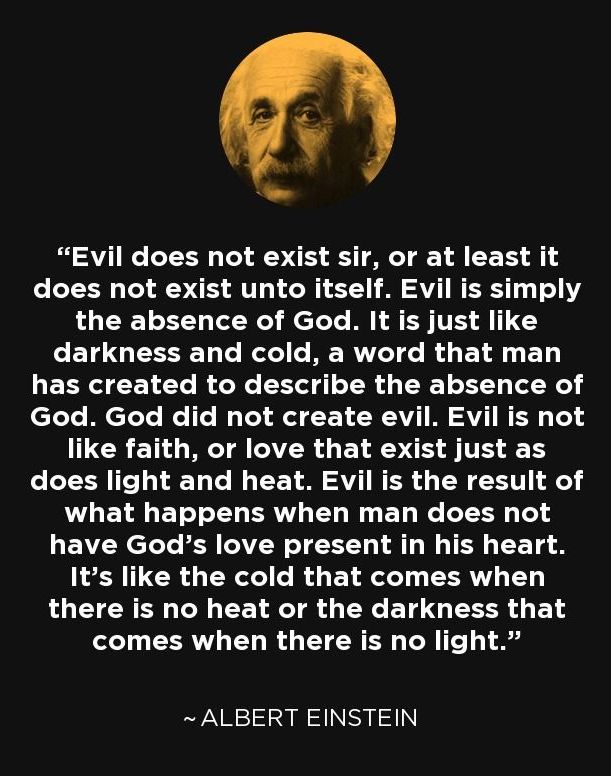|
home | what's new | other sites | contact | about |
||||||||||
|
Word Gems exploring self-realization, sacred personhood, and full humanity
Truth
"A faith that cannot survive collision with the truth is not worth many regrets." Arthur C. Clarke
Dr. Mortimer J. Adler's Syntopicon Essay: Truth Editor's 1-Minute Essay: Truth Editor's Essay: Truth is a living thing Colin Tudge: How can we know what’s real? Metaphysics, ‘the art of the unknowable’.
Edmund Burke (1729-1797), Anglo-Irish statesman, economist, and philosopher. "Facts are to the mind, what food is to the body. On the due digestion of the former depend the strength and wisdom of the one, just as vigour and health depend on the other. The wisest in council, the ablest in debate, and the most agreeable companion in the commerce of human life, is that man who has assimilated to his understanding the greatest number of facts." Dostoevsky, The Brothers Karamazov: “Above all, don't lie to yourself. The man who lies to himself and listens to his own lie comes to a point that he cannot distinguish the truth within him, or around him, and so loses all respect for himself and for others. And having no respect he ceases to love… What is hell? I maintain that it is the suffering of being unable to love… Lying to ourselves is more deeply ingrained than lying to others.” Channeled testimony via the mediumship of W. Aber, presented in the book The Guiding Star: “This … is the history of all intellectual progress. The man who lives on the higher plane of his own being, who with mighty efforts has surmounted commonplaces, traditions, and conventions (surmounted, not skirted their base), and who has strength enough to carry his intelligence a furlong farther into chaos, to snatch from the formless and the void the thought that shall revolutionize society in the coming generations, rarely has strength enough also to mold it into logical and verbal perfection which will appeal to all educated and thinking men. But other men, struggling toward the same goal, who have had their steps directed and their pathway smoothed by the original explorer, can use their untaxed energies in giving form and symmetry to the new truth. These men may even have more strength and use it more tellingly than the men who live on what you have called the higher plane.”
Religio-Philosophical Journal: “TRUTH wears no mask, bows at no human shrine, seeks neither place nor applause: she only asks a hearing.” Shakespeare, The Merchant of Venice: “… truth will come to light; murder cannot be hid long; a man's son may, but at the length truth will out.” Sir Oliver Lodge: "Always mistrust negations. They commonly signify blindness and "The impossibility of squaring the circle is not really a negative
Scott Mandelker: "In the end, we return to the question, just how much do you love truth? Do you really love truth or are you just curious? Do you love it enough to rebuild your understanding to conform to a reality that doesn't fit your current beliefs, and doesn't feel 120% happy? Do you love truth enough to continue seeking even when it hurts, when it reveals aspects of yourself (or human society, or the universe) that are shocking, complex and disturbing, or humbling, glorious and amazing - or even, when truth is far beyond human mind itself?"
Dorothy Sayers, Gaudy Night: "The proportion and relations of things are just as much facts as the things themselves; and if you get those wrong, you falsify the picture really seriously." Winston Churchill: "You see these dictators on their pedestals, surrounded by the bayonets of their soldiers and the truncheons of their police. Yet in their hearts there is unspoken - unspeakable! - fear. They are afraid of words and thoughts! Words spoken abroad, thoughts stirring at home, all the more powerful because they are forbidden. These terrify them. A little mouse - a little tiny mouse! - of thought appears in the room, and even the mightiest potentates are thrown into panic."
William James, Pragmatism, 1907: "All the great single-word answers to the world's riddle, such as God, the One, Reason, Law, Spirit, Matter, Nature, Polarity, the Dialectic Process, the Idea, the Self, the Oversoul, draw the admiration that men have lavished on them from this oracular role. By amateurs in philosophy and professionals alike, the universe is represented as a queer sort of petrified sphinx whose appeal to man consists in a monotonous challenge to his divining powers. THE Truth: what a perfect idol of the rationalistic mind!" John Milton, Areopagitica: "For books are not absolutely dead things, but... do preserve as in a vial the purest efficacy and extraction of that living intellect that bred them... who kills a man kills a reasonable creature, God's image; but he who destroys a good book, kills Reason itself, kills the Image of God, as it were in the eye. Many a man lives a burden to the Earth; but a good Book is the precious life-blood of a master-spirit, embalmed and treasured up on purpose to a life beyond life." George Orwell, 1984: "Only the disciplined mind can see reality, Winston. You believe that reality is something objective, external, existing in its own right ... self-evident... But ... reality is not external. Reality exists in the human mind, and nowhere else. Not in the individual mind, which can make mistakes, and in any case soon perishes; only in the mind of the Party, which is collective and immortal. Whatever the Party holds to be truth is truth. It is impossible to see reality except by looking through the eyes of the Party. This is the fact that you have got to relearn, Winston... You must humble yourself before you can become sane."
U.S. Supreme Court Justice Louis Brandeis: "A little sunlight is the best disinfectant. John 1:5: "The Life-Light blazed out of the darkness; the darkness could not put it out" (The Message translation). Editor's note: Commentators point out that the flame of a single candle begins to defeat darkness, and increasingly so with each incremental addition of candlepower. But darkness has no such corresponding power over light. Someone has said that it’s not strictly true that light and darkness are opposites, implying that they are co-equals in power. Light is something substantive; darkness is merely the absence of light. Darkness must begin to flee before the smallest encroachment of light, but darkness has not the least such power over light.
Thomas Jefferson: "It is error alone which needs the support of government. Truth can stand by itself." Mark Twain: It's no wonder that truth is stranger than fiction. Fiction has to make sense. President Ronald Reagan, Jan. 11, 1989, final address to the nation from the Oval Office: "[During the last eight years] I won a nickname, 'the Great Communicator.' But I never thought it was my style or the words I used that made a difference. It was the content. I wasn't a great communicator. But I communicated great things - and they didn't spring full bloom from my brow; they came from ... our wisdom and our belief in the principles that have guided us for two centuries." Rilke, a letter to a friend, Dresden University: "Be patient with all that is unresolved in your heart. And try to love the questions themselves. Do not seek for the answers that cannot be given. For you wouldn't be able to live with them. And the point is to live everything, live the questions now, and perhaps without knowing it, you will live along, some day, into the answers." Antoine de Saint-Exupery: "It is only with the heart that one can see rightly. What is essential is invisible to the eye." Giordano Bruno (1548-1600); burned alive by the Church: "It is proof of a base and low mind for one to wish to think with the masses or majority, merely because the majority is the majority. Truth does not change because it is, or is not, believed by a majority of the people." Tolstoy: "I know that most men...can seldom accept even the simplest and most obvious truth if it be such as would oblige them to admit the falsity of conclusions which they have delighted in explaining to colleagues, which they have proudly taught to others, and which they have woven, thread by thread, into the fabrics of their lives." Richard Feynman: But I don't have to know an answer. I don't feel frightened by not knowing things, by being lost in the mysterious universe without having any purpose - which is the way it really is, as far as I can tell, possibly. It doesn't frighten me. Richard Feynman: I learned very early the difference between knowing the name of something and knowing something. Richard Feynman: The truth always turns out to be simpler than you thought. Helen Keller: "Many people know so little about what is beyond their short range of experience. They look within themselves--and find nothing! Therefore they conclude that there is nothing outside themselves either." Richard Feynman: "A paradox is not a conflict with reality. It is a conflict between reality and your feeling of what reality should be like." Tsao Hsueh-chin: "When the unreal is taken for the real, the real becomes unreal." Robert A. Heinlein, Stranger in a Strange Land: “The slickest way to lie is to tell the right amount of truth -- then shut up.” Anais Nin: "We don't see things as they are, we see them as we are." Ronald Reagan: “Freedom is the recognition that no single person, no single authority of government has a monopoly on the truth, but that every individual life is infinitely precious, that every one of us put on this world has been put there for a reason and has something to offer.” Sir Arthur Conan Doyle: "When you have eliminated the impossible, whatever remains, however improbable, must be the truth." Voltaire: "No culture has a monopoly on beauty, just as no religion has a monopoly on truth." Reb Yerachmiel Ben Yisrael: “The Truth is not hidden from us. We are hiding from it.” Harry S Truman (1884-1972): "I never give them hell; I just tell them the truth and they think it is hell." H. L. Mencken: "The world always makes the assumption that the exposure of an error is identical with the discovery of truth -- that the error and truth are simply opposite. They are nothing of the sort. What the world turns to, when it is cured on one error, is usually simply another error, and maybe one worse than the first one." Editor's note: Truth is not the opposite of error. Truth simply means "reality" and, like authentic love, joy, and other universal attributes, has no opposite, no dualistic counterpart, but is all pervasive. That which is true differs greatly from truth! That which is true represents close conformance between reality and the mind's perception of it. That which is true does have an opposite - we call it "error"; or, a lack of conformance between reality and the mind's perception of it." John Milton: "Truth ... never comes into the world but like a Bastard, to the ignominy of him that brought her forth." Ludwig von Mises: "The criterion of truth is that it works even if nobody is prepared to acknowledge it." Michel Eyquem de Montaigne: "If falsehood, like truth, had but one face, we would be more on equal terms. For we would consider the contrary of what the liar said to be certain. But the opposite of truth has a hundred thousand faces and an infinite field." Charles Peguy: "The honest man must be a perpetual renegade, the life of an honest man a perpetual infidelity. For the man who wishes to remain faithful to truth must make himself perpetually unfaithful to all the continual, successive, indefatigable renascent errors." Max Planck: "A new scientific truth does not triumph by convincing its opponents and making them see the light, but rather because its opponents eventually die out, and a new generation grows up that is familiar with it." Henry David Thoreau: "Rather than love, than money, than fame, give me truth... Let us settle ourselves, and work and wedge our feet downward through the mud and slush of opinion, and prejudice and tradition, and delusion, and appearance, that alluvion which covers the globe...till we come to the hard bottom of rocks in place, which we can call reality." Voltaire: "What is not in nature can never be true." Frank Lloyd Wright: "Truth against the world." Alfred Adler: "A lie would have no sense unless the truth were felt dangerous." W. H. Auden: "The most important truths are likely to be those which...society at that time least wants to hear." Winston Churchill: "Men occasionally stumble over the truth, but most of them pick themselves up and hurry off as if nothing had happened." Erich Fromm: "Historically...those who told the truth about a particular regime have been exiled, jailed, or killed by those in power whose fury has been aroused. To be sure, the obvious explanation is that they were dangerous to their respective establishments, and that killing them seemed the best way to protect the status quo. This is true enough, but it does not explain the fact that the truth-sayers are so deeply hated even when they do not constitute a real threat to the established order. The reason lies, I believe, in that by speaking the truth they mobilize the [psychological] resistance of those who repress it. To the latter, the truth is dangerous not only because it can threaten their power but because it shakes their whole conscious system of orientation, deprives them of their rationalizations, and might even force them to act differently. Only those who have experienced the process of becoming aware of important impulses that were repressed know the earthquake-like sense of bewilderment and confusion that occurs as a result. Not all people are willing to risk this adventure, least of all those people who profit, at least for the moment, from being blind." Andre Gide: "Believe those who are seeking the truth. Doubt those who find it." Johann Wolfgang von Goethe: "The first and last thing required of genius is the love of truth." Adolph Hitler: "There is no such thing as truth." Eric Hoffer: "To most of us nothing is so invisible as an unpleasant truth. Though it is held before our eyes, pushed under our noses, rammed down our throats - we know it not." Albert Einstein: "The pursuit of truth and beauty is a sphere of activity in which we are permitted to remain children all our lives... The most beautiful thing we can experience is the mysterious. It is the source of all true art and science. He to whom this emotion is a stranger, who can no longer pause to wonder and stand rapt in awe, is as good as dead: his eyes are closed... When I examine myself and my methods of thought, I come to the conclusion that the gift of fantasy has meant more to me than any talent for abstract, positive thinking." Dr. Mortimer Adler, Syntopicon essay, Truth: "But the ancient controversy in which Socrates engages with the sophists of his day, who were willing to regard as true whatever anyone wished to think, seems to differ not at all from Freud's quarrel with those whom he calls intellectual nihilists. They are the persons who say there is no such thing as truth or that it is only the product of our own needs and desires. They make it 'absolutely immaterial,' Freud writes, 'what views we accept. All of them are equally true and false. And no one has a right to accuse anyone else of error.' ... If all opinions are equally true or false, then why, Aristotle asks, does not the denier of truth walk 'into a well or over a precipice' instead of avoiding such things. 'If it were really a matter of indifference what we believed,' Freud similarly argues, 'then we might just as well build our bridges of cardboard as of stone, or inject a tenth of a gramme of morphia into a patient instead of a hundredth, or take tear-gas as a narcotic instead of ether. But,' he adds, 'the intellectual anarchists themselves would strongly repudiate such practical applications of their theory.'" Josh Billings, Affurisms from Josh Billings: His Sayings, 1865: "As scarce as truth is, the supply has always been in excess of the demand." Thomas Mann, Essay on Freud: "A great truth is a truth whose opposite is also a great truth." Albert Einstein: "The ideals which have lighted my way, and time after time have given me new courage to face life cheerfully, have been Kindness, Beauty, and Truth." Ancient Buddhist Proverb: "When the student is ready, the teacher will appear." The Apostle John: "This then is the message which we have heard of him ... God is light and in him is no darkness at all." [Editor's note: John asserts this within the context of combating the Gnostic heresy, one which proclaimed that certain gurus had special knowledge of God, obtainable only through them, of course. God is Light; that is, by nature, God is self-revealing; that it is his whole desire to reveal himself and all truth to us. In fact, the universe has been so constructed as to reveal all answers. So why are we still so much in the dark if this is so? God, ever gracious, always respectful of our freedom to choose, force-feeds no one. The above Buddhist proverb says it all.] Oscar Wilde: "A thing is not necessarily true because a man died for it." Emile Zola: "When truth is buried underground, it grows, it chokes, it gathers such an explosive force that on the day it bursts out, it blows up everything with it." Charles Van Doren, speaking at a memorial service for Mortimer Adler, 2001: "I remember the first seminar we led together, nearly forty years ago. The text was Plato's dialogue, The Sophist. I had read it twice or three times and struggled to get the point. It could not be what it seemed to be. But Mortimer helped us all to understand: The true sophist, Plato is saying, cannot be trapped -- if he is willing to say anything whatsoever to win the argument. If he wants to win at all costs and does not care what is true, and if he is adept at fending off the truth when it is presented, the sophist will triumph, and you will fail ." Melvin Morse, M.D., Transformed By The Light: "[Regarding paranormal research] I also think that the level of proof we are required to present is irrationally high. Most of our modern medical and scientific advances are based on scientific data far less documented than the eyewitness and independently verified stories we hear in our research. For example, most of our infant feeding practices are based on statistically suspect or anecdotal studies. Most people believe in the existence of infant colic, yet it is difficult to find any consensus in the medical literature on what it is and how to treat it. Even the value of having a low serum cholesterol, something almost completely accepted by the public, is the subject of debate in scientific circles. Despite the controversy, we build guidelines to live by from these accepted 'facts.' Why? Simply because the principles we follow work most of the time and don't really change our world view. We feed babies a certain way, treat them for something we can only loosely define as colic, and keep our cholesterol levels low even if the why is not scientifically nailed down. We do this because, frankly, these rules do not interfere too much with our lives. Since there is so much documentation to back up these shared experiences, why are they and other spiritual experiences not generally accepted as being true? I think the answer is quite simple. Believing in them would radically change our world view, challenging everything from natural laws to spiritual beliefs." Brian Josephson, Times Higher Education Supplement, 12 Aug. 1994: "For the last six weeks, BBC2 TV has been running a series called Heretic, detailing the responses of the scientific community to ideas generally considered unacceptable by scientists, and the treatment given to those advocating such ideas... In every case a similar story unfolded: dismissal of the claims as being nonsense or impossible, generally without any serious attempt to look at the evidence or the arguments; the non-materialisation of the honours, promotions, invitations to give public lectures and so on that such individuals might have been expected to receive given their past achievements; violent attacks by other scientists; and, for some, demotion or withdrawal of research facilities." Goethe: "Few men have imagination enough for reality." Herbert Puryear, The Edgar Cayce Primer: "Nothing hinders us more than saying one thing and doing another. Yet all of us know more of what constitutes a 'better way' in many aspects of our life than we are willing to apply. There is a quality within us which deters us from doing our best. If we could identify, and confront that quality, accept responsibility for it and not project it upon others, we would take a great step toward our own better well-being. All that is asked of any of us as souls is that we do what we presently know to do. When we do what we know to do, the next step is already given. There is a saying from the East that when the student is ready, the teacher will appear. This often is taken to mean that a person will appear as a master; however, another way of understanding this truth is that when we bring ourselves to the point of being truly ready to learn, the learning experience needed will be forthcoming. We may think of ourselves as being ready to learn only insofar as we are applying what we already know." Herbert Puryear, The Edgar Cayce Primer: "Edgar Cayce encouraged comparative study. He frequently stated that we learn by comparing different points of view, for 'No finite mind can hold all the truth.' As he suggests, our fellowmen are always going to have experiences, awarenesses, and therefore viewpoints different from our own. If we can listen to each other and share our experiences, we have a chance to broaden our insights." Arthur Findlay, The Rock of Truth: "What is the truth? ... Truth is eternal and unchangeable. We who are finite and subject to change can only appreciate it little by little. Truth is always the same, but as we change and advance mentally we can grasp it better. Until we are mentally developed, truth will not be fully comprehended, but, as we evolve, it slowly becomes clearer. Often in ignorance we mistake for truth what is error, and the history of man is the history of error gradually giving place to truth." Arthur Findlay, The Rock of Truth: "Next best to finding the truth is to search for it, and to do so all should question and reason, as these are the guide posts scattered on the winding road that leads to truth. Truth loves discussion, and the doubting questioning mind of the investigator which creates intelligence, candour, honesty, sympathy and charity for all. Truth is the enemy of ignorance, prejudice, egotism, bigotry and hypocrisy. The one lives by day, the others by night. Let us each, therefore, be a torch-bearer of the truth and always strive for light, more light. We now realise that all past mistakes just taught mankind to reach the road of truth. We pity the follies of the past but understand them. We admire the achievements of the past and should try to emulate them. All the past errors and mistakes of man, with their consequent sufferings and cruelties, were caused by the stones of ignorance, over which he stumbled, on the road that leads to perfection. As a result his next steps were taken with greater thought." Confucious: "Three things cannot long be hidden: the sun, the moon, and the truth." Albert Schweitzer: "Truth has not special time of its own. Its hour is now - always and, indeed, then most truly when it seems unsuitable to actual circumstances." Martin Luther King, Jr.: "I believe that unarmed truth and unconditional love will have the final word in reality. This is why right, temporarily defeated, is stronger than evil triumphant." Boris Pasternak: "What is laid down, ordered, factual is never enough to embrace the whole truth: life always spills over the rim of every cup." Malcolm X: "I'm for truth, no matter who tells it. I'm for justice, no matter who it's for or against." Spinoza: "Be not astonished at new ideas; for it is well known to you that a thing does not therefore cease to be true because it is not accepted by many." Winston Churchill: "Truth is incontrovertible, ignorance can deride it, panic may resent it, malice may destroy it, but there it is." Will Rogers: "Nothing makes a man, or a body of men, as mad as the truth. If there is no truth in it, they laugh it off." Dr. Gary E. Schwartz, U. of Arizona, The AfterLife Experiments: "Data can be stranger than fiction. Are you ready for the data? As Carl Sagan wrote in 'Contact,' Do you wanna take a ride? ... I was trained to look at the world as an intellectual, a scientist. In science we hypothesize; we do not believe. And science does not establish 'proof' so much as provide evidence for or against a hypothesis." Thomas Jefferson: "I was bold in the pursuit of knowledge, never fearing to follow truth and reason to whatever results they led." Benjamin Disraeli: "Something unpleasant is coming when men are anxious to tell the truth." Leslie Weatherhead: “[The poet] is not sure of a truth because he has proved it [by logical argument], but because he has seen it. Indeed, in some moments of rapture he has experienced it... Aristotle, in the Poetics, believed poetry to be inspired, and to imply either a strain of madness or a happy gift of nature; and he divides poetry into the ecstatic [a "standing out" of oneself] and the euplastic [easily or commonly formed]. It is the ecstatic poet [who] requires explanation. The poet, inspired by some vivid experience, goes into a kind of trance -- we think the phrase is not too strong -- and thereupon sees a vision which he expresses in poetical ideas, that those who read may have that experience re-created in them... It is because of this different way of arriving at truth, we think, that the poet has so often led the way in expressing ideas which are among the most profound [and] cherished by mankind. On the wings of vision the poet soars to a pinnacle of truth... It may be that the poet's creation ... may point to some as yet unrealized desire of humanity, for which the poet, as a prophet of the race, yearns. So, Shelley says ... They are the dreams of what ought to be, or may be." Thomas Jefferson: "No experiment can be more interesting than that we are now trying, and which we trust will end in establishing the fact, that men can be governed by reason and truth." Albert Einstein: "Nature conceals her secrets because she is sublime, not because she is a trickster." Kenneth Wapnick: "The shared content of all inspired works is the desire to express what is true for their authors, regardless of the form of artistic expression in which it comes." Eugene L’Hote: "Honesty isn’t a policy at all; it’s a state of mind or it isn’t honesty." Henry David Thoreau, Walden: "Rather than love, than money, than fame, give me truth. I sat at a table where were rich food and wine in abundance, and obsequious attendance, but sincerity and truth were not; and I went away hungry from the inhospitable board." Albert Einstein: "Unthinking respect for authority is the greatest enemy of truth." John Adams: "Facts are stubborn things; and whatever may be our wishes, our inclinations, or the dictates of our passions, they cannot alter the state of facts and evidence." J. Scott Turner: "Academe is full of wrongheaded ideas, and has always been --not because academe itself is wrongheaded, but because to discuss such ideas is its very function. Even bad ideas can contain kernels of truth, and it is academe's role to find them. That can be done only in the sunlight and fresh air of normal academic discourse. Expelling an idea [from the discourse] is the surest way to allow falsehood to survive." Albert Einstein: "Concerning matter, we have been all wrong. What we have called matter is energy, whose vibration has been so lowered as to be perceptible to the senses. There is no matter." What you think is solid is merely a vibrational frequency that your senses can perceive. Energy cannot be created or destroyed: therefore, you are immortal, infinite! Galileo Galilei: All truths are easy to understand once they are discovered; the point is to discover them. Einstein: The moon does not simply disappear when we are not looking at it. David Chalmers: How does something as immaterial as consciousness, arise from something as unconsciousness as matter? Channeled information from Aenka, who materialized through Jay Barham’s mediumship and lectured Barham and a small group for 2-3 hours at a time for nearly 30 years. “If you rely upon an empirical method for belief in our existence you will never attain it because it falls out of the scope of the dimension to which your five senses operate. To seek knowledge of the truth through the witnessing of phenomena, or even through what I might hope to teach you, is not possible. It must come from a personal experience gained through an inward searching and a trusting of one’s self to recognize the truth when it is presented. Many minds say, ‘But Christ offered proof through the performing of miracles.’ Indeed He did. And most continued to be skeptical and suspicious. He performed demonstrations in front of thousands. Yet at the time He was crucified there were only a handful of supporters who had glimpsed the truth within, and had gained the inner strength necessary to carry on under adversity.” Professor Daniel Robinson, Georgetown University: "We always look back on the long shadow of Socrates, who wrote not a line, while we proceed to write volumes." Editor's note: Did Socrates and Jesus write "not a line," while their followers filled the world with books, because they understood the message of Aenka? If so, if it can be done, what is the proper mode of truth's transmission from one person to another?" Fredrick Myers via Geraldine Cummins, from The Road to Immortality, the chapter, “The Prison Of The Senses”: Your present surroundings are, in a sense, your creation, in that you are mentally so unemancipated, your nerves and senses convey to you your perception of life. If you were capable of focusing your ego or daily consciousness within your deeper mind, if in short you trained yourself to pass into a thought compound from which form, as the senses convey it, were absent, the material world would vanish. You would no longer perceive it. If you were sufficiently developed spiritually you might be able to escape form altogether, though actually this is not possible until you have had numberless further experiences. However, on higher planes of being your intellectual power is so greatly increased that you can control form; you learn how to draw life to it. As a sculptor takes up the formless clay and shapes it, so does your mind draw life and light to it and shape your own surroundings according to your vision. In the first state your vision is limited by your earth experiences and memories, and so you create your own version of the appearances you knew on earth. Understand, however, that in Illusionland [Summerland] you do not consciously create your surroundings through an act of thought. Your emotional desires, your deeper mind manufactures these without your being actually aware of the process. For still you are the individualized soul caught within the limitations of your earthly self and caught also within the fine etheric body which now is yours. Henry David Thoreau: "To be a philosopher is not merely to have subtle thoughts, nor even to found a school, but so to love wisdom as to live, according to its dictates, a life of simplicity, independence, magnanimity, and trust." Upton Sinclair: “It is difficult to get a man to understand something, when his salary depends on his not understanding it." Thomas Henry Huxley: “Sit down before fact as a little child, be prepared to give up every preconceived notion, follow humbly wherever and to whatever abysses nature leads, or you shall learn nothing” Thomas Henry Huxley: “Agnosticism simply means that a man shall not say he knows or believes that for which he has no grounds for professing to believe.” Thomas Henry Huxley: “The deepest sin of the human mind is to believe things without evidence.” Thomas Henry Huxley: “Science is organized common sense where many a beautiful theory was killed by an ugly fact.” Foster Gamble: "His name was Richard Mellersh and he was the most influential teacher I ever had in school. The main thing I remember from him was that he insisted that we not believe anything until we checked it out for ourselves, and even then to realize that any scientific theory was just a ‘model’ of reality that would eventually be replaced by one more accurate... It’s often joked in the Physics world that the new paradigm emerges 'one funeral at a time.' It’s understandable that if your education, your writings, your experiments, your tenure, and your income are all based on a particular set of beliefs, that it might be challenging to let them change. I have been in the room with PhDs literally throwing fits as well as objects as their worldview seems threatened. I have observed that, in an uncertain, infinite, fractal, holographic universe like what we seem to inhabit, the emerging realizations are easier to integrate for those who have had some sort of meditative, near-death or other type of mind-transcending experiences. I had the opportunity to spend an afternoon with the Dalai Lama and someone asked him what he was particularly enjoying these days. His answer was, 'Talking with Western physicists.' When asked why, he replied, with a grin, 'Because they are finally starting to get it.' We are living in a dynamic time when mystics and scientists are meeting on common ground." Dr. Richard Feynman: "... there are many reasons why you might not understand [an explanation of a scientific theory] ... Finally, there is this possibility: after I tell you something, you just can't believe it. You can't accept it. You don't like it. A little screen comes down and you don't listen anymore. I'm going to describe to you how Nature is - and if you don't like it, that's going to get in the way of your understanding it. It's a problem that [scientists] have learned to deal with: They've learned to realize that whether they like a theory or they don't like a theory is not the essential question. Rather, it is whether or not the theory gives predictions that agree with experiment. It is not a question of whether a theory is philosophically delightful, or easy to understand, or perfectly reasonable from the point of view of common sense. [A scientific theory] describes Nature as absurd from the point of view of common sense. And it agrees fully with experiment. So I hope you can accept Nature as She is – absurd. I'm going to have fun telling you about this absurdity, because I find it delightful. Please don't turn yourself off because you can't believe Nature is so strange. Just hear me all out, and I hope you'll be as delighted as I am when we're through." Thomas Jefferson: "I have sworn upon the altar of Almighty God eternal hostility against every form of tyranny over the mind of man."
|
||||||||||
|
|
